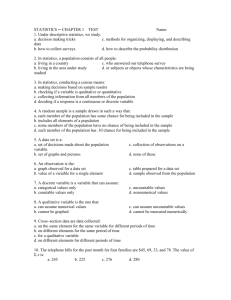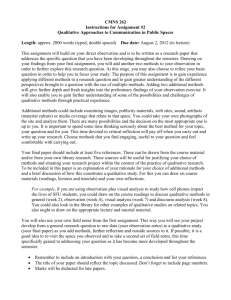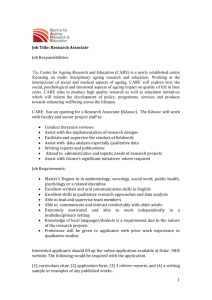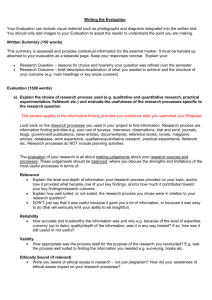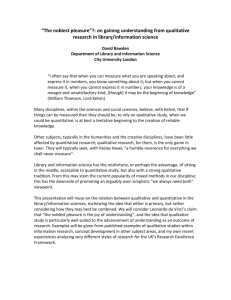Institute of International Management
advertisement
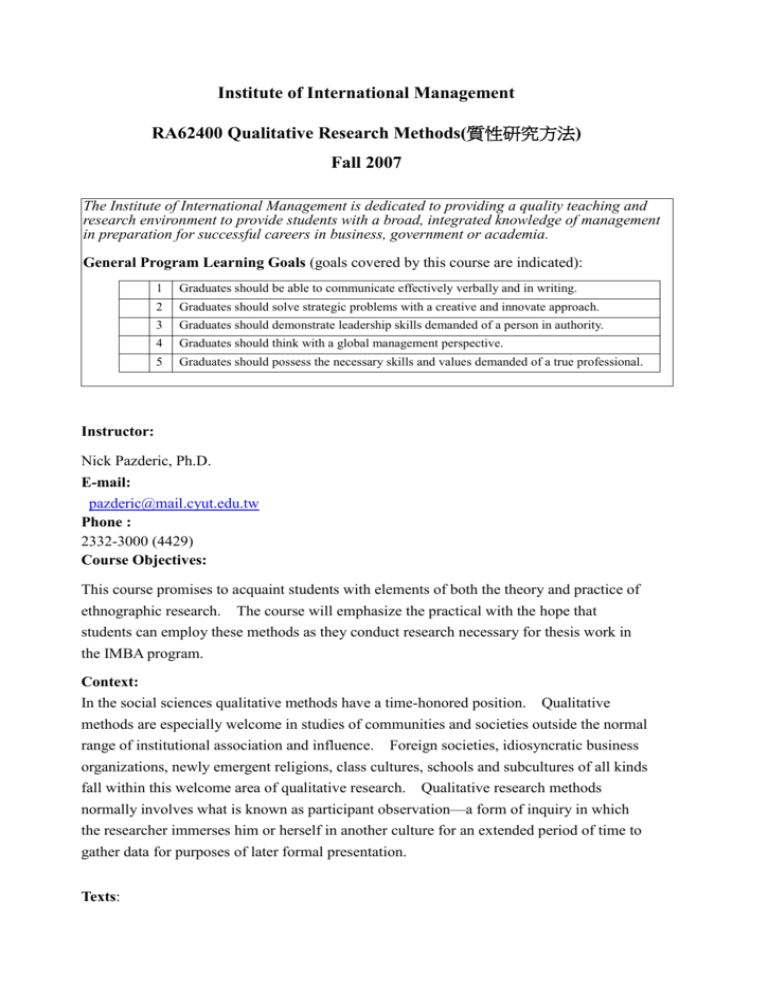
Institute of International Management RA62400 Qualitative Research Methods(質性研究方法) Fall 2007 The Institute of International Management is dedicated to providing a quality teaching and research environment to provide students with a broad, integrated knowledge of management in preparation for successful careers in business, government or academia. General Program Learning Goals (goals covered by this course are indicated): 1 Graduates should be able to communicate effectively verbally and in writing. 2 Graduates should solve strategic problems with a creative and innovate approach. 3 Graduates should demonstrate leadership skills demanded of a person in authority. 4 Graduates should think with a global management perspective. 5 Graduates should possess the necessary skills and values demanded of a true professional. Instructor: Nick Pazderic, Ph.D. E-mail: pazderic@mail.cyut.edu.tw Phone : 2332-3000 (4429) Course Objectives: This course promises to acquaint students with elements of both the theory and practice of ethnographic research. The course will emphasize the practical with the hope that students can employ these methods as they conduct research necessary for thesis work in the IMBA program. Context: In the social sciences qualitative methods have a time-honored position. Qualitative methods are especially welcome in studies of communities and societies outside the normal range of institutional association and influence. Foreign societies, idiosyncratic business organizations, newly emergent religions, class cultures, schools and subcultures of all kinds fall within this welcome area of qualitative research. Qualitative research methods normally involves what is known as participant observation—a form of inquiry in which the researcher immerses him or herself in another culture for an extended period of time to gather data for purposes of later formal presentation. Texts: Bestor, Theordore C, Patricia G. Steinhoff and Victoria Lyon Bestor, ed. Doing Field Research in Japan. Honolulu: University of Hawaii Press, 2003. Strauss, Anselm and Juliet Corbin, ed. Basics of Qualitative Research: Techniques and Procedures for Developing Grounded Theory. Thousand Oaks, CA: Sage Publications, 1998. Grading policy: Depending on the number of students, four presentations will be given by each student. Each presentation will count for 1/4 of the course grade. The instructor will provide substantial coaching to ensure that students are able to perform for excellent results. However, I the number of students is too high for individual presentations, either group projects or tests will be administered. Course Schedule: September 30 Introductions October 14Student Presentations of Qualitative Research in their Fields Part One: Starting Out October 28 Starting Out, Reading: Doing Fieldwork in Japan 21-108 November 11 Student Presentations of Preliminary Fieldwork Part Two: Description, Conceptual Ordering, and Theorizing November 25 Reading: Basics of Qualitative Research 1-241 December 9Student Presentations of Preliminary Fieldnote Organization Part Three: Practical Ethnography December 23 : Reading: Doing Fieldwork in Japan 156-247 January 13 Final Student Presentations on the Results of field Projects


